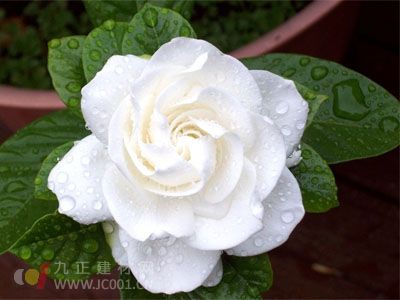Precautions for Growing Medlar Flowers:
Medlar flowers, also known as gardenias, are beautiful and fragrant, but they require careful attention to thrive. Here are some important tips to help you grow them successfully.
1. Acidic Soil: Gardenias prefer acidic soil with a pH between 5.0 and 6.5. If the soil is too alkaline, the plant may suffer from iron deficiency, leading to yellowing leaves and poor growth. To improve soil acidity, mix in pine bark or peat moss. Avoid using lime or other alkaline materials.
2. Light Requirements: While gardenias need bright, indirect light, they should not be placed in direct sunlight all day. A balance of 60% light and 40% shade is ideal. Too much sun can scorch the leaves, while too little light can prevent blooming.
3. Humidity Levels: These plants thrive in high humidity, ideally above 70%. Low humidity can cause buds to drop and hinder flowering. Mist the leaves regularly and place a tray of water near the plant to increase moisture in the air. However, avoid overwatering, as it can lead to root rot.

4. Fertilization: Use organic fertilizers like fermented bean cake, sesame residue, or peanut meal. Apply diluted solutions to avoid burning the roots. Avoid using fresh manure, especially if the plant is less than three years old. Excessive nitrogen can lead to lush foliage but no flowers, while a lack of phosphorus and potassium can result in weak blooms or bud drop.
5. Temperature Control: During the growing season, keep temperatures between 18°C and 22°C. In winter, maintain temperatures between 5°C and 10°C. Avoid exposing the plant to temperatures below -10°C, as this can cause frost damage.
6. Pruning Techniques: Regular pruning helps maintain shape and promotes healthy growth. Remove any unwanted branches that grow from the base. After flowering, cut back the stems to encourage new growth. When new shoots reach three nodes, pinch them to prevent leggy growth.
7. Preventing Leaf Yellowing: Yellow leaves can be caused by several factors:
1. Iron Deficiency: High levels of calcium or phosphorus in the soil can block iron absorption. Treat with 1/500 ferrous sulfate solution or 0.2% chelated iron every 10 days.
2. Magnesium Deficiency: This often occurs in acidic soils with excess potassium. Spray with 1–2% magnesium sulfate, but be cautious not to overapply, as it can interfere with calcium uptake.
3. Watering Issues: Both overwatering and underwatering can cause yellowing. Keep the soil consistently moist but not soggy.
4. Excessive Sunlight: Too much direct sun in summer can burn the leaves and cause yellow spots. Provide partial shade during the hottest hours.
(Word count: 507)TS HARDWARE proudly offers a wide variety of stainless steel bolts in several sizes and styles such as hex head, socket style, carriage, and lag bolts. Most of our inventory is available in both type 18-8 and 316 stainless steel bolts. Type 18-8 are standard grade, while 316 is a superior type often referred to as marine-grade steel. It`s known for its durability against harsh conditions that cause rust or corrosion. While 18-8 and 316 stainless steel bolts have a similar strength composition, restaurants, hospitals, and water treatment facilities are best served by marine-grade products. Checkout our unique collection below, and contact us with any questions or concerns. Our highly-trained staff can help you! Can`t find what you`re looking for? Check out our stainless steel screws for more options.
Stainless Steel Bolt,Stainless Steel Eye Bolts,Stainless Steel U Bolts,Stainless Steel Nuts And Bolts
Taizhou TS HARDWARE Co., Ltd , https://www.shuwengroup.com
